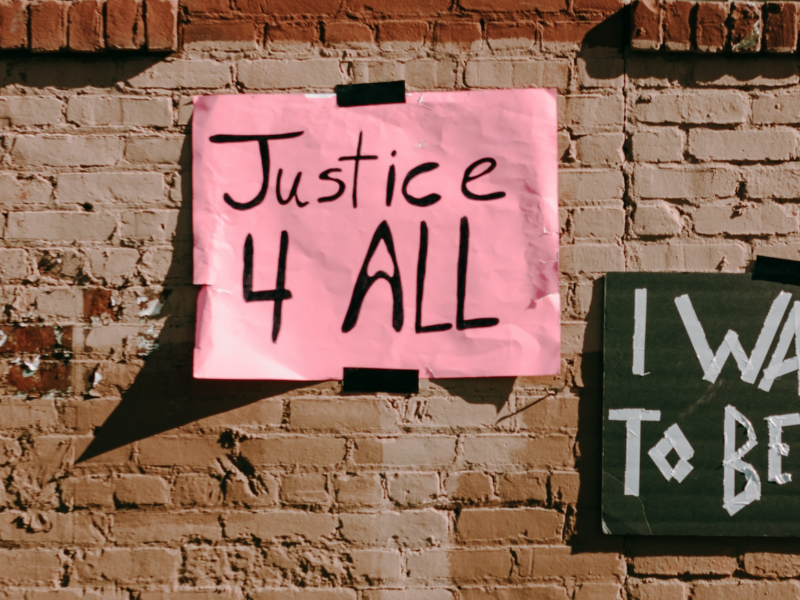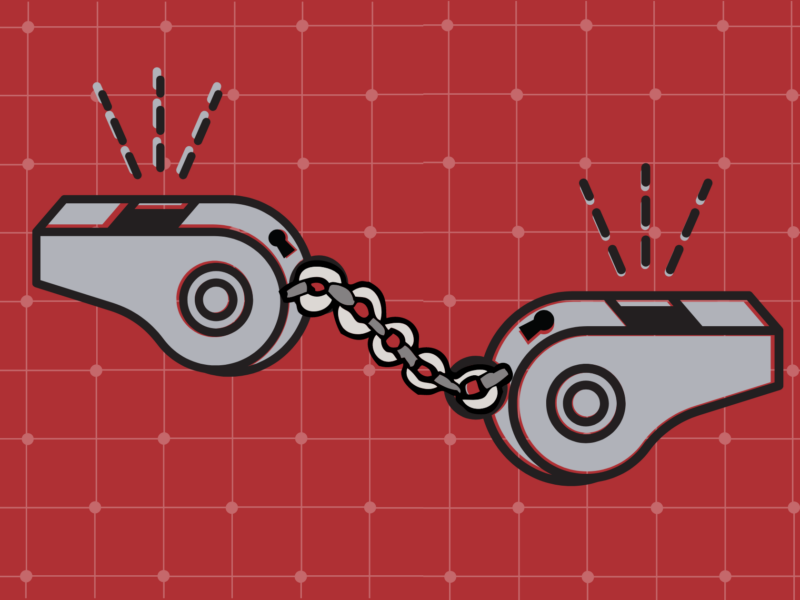Journalist Gabe Schneider is acutely aware of — and vocal about — the problems facing the media industry. As co-founder and lead editor of The Objective, a publication dedicated to media commentary by and for people who are underrepresented in newsroom leadership, he’s been described as someone who is “quietly fixing journalism.” In the latest installment of the Center for Media at Risk’s Reflections series, Schneider spoke with Louisa Lincoln, Steering Committee Member and Annenberg doctoral student, about journalism, objectivity and where the media industry goes from here.
There’s a new administration in the White House, newsrooms are restructuring and shifting their coverage to adapt, and on top of that entire leadership of some newsrooms are changing. This is a turning point for the media industry and journalism as a whole. What do you think should come out of this period of change? Will anything come out of this?
I think there’s what I think should come out of this period, and more cynically, what I think will come out of this period of change. I think many newsrooms are saying they’re making a serious commitment to equity and diversity. Many newsrooms are apologizing for their past actions, like The Kansas City Star’s apology for poorly covering Black Americans, and are committing to new practices that actually interface with the community. But I think many of these promises, from many legacy newspapers, have yet to show any results. Reporters are still being punished for speaking to their experiences or even just factually relaying information that might be construed as biased by certain audiences.
What lessons do you think journalists can take away from covering the Trump administration, and what aspects of Trump-era journalism should be left behind?
As for the Trump administration, I think it’s important that journalists do not leave with the takeaway that Trump was an aberration. His brand of xenophobic and racist politics are older than the United States and have a rich history in our political system. My hope is that political reporters take American history more seriously when it comes to the way they analyze the white grievance politics used by President Trump and those around him. And what should be left behind from Trump-era journalism? The idea that Fox News is in any way a legitimate news source or employs reporters — the network is at best a dangerous mouthpiece for xenophobia and hatred. And, while it may seem obvious to some reporters, many still seem to take journalists that work there seriously. It should not be acceptable to work in that national newsroom without a permanent stain on your career.

As I mentioned, several prominent national media organizations — including The Washington Post, The Los Angeles Times and CNN, among others — are currently in search of top editors to take over leadership in their newsrooms. What are your hopes for the people that are appointed to those roles, and how do you see those changes in leadership benefiting the journalism industry as a whole?
My hope is that the people in those roles actually understand the failures of their predecessors. Objectivity, as we know it, has outlived its usefulness. Objectivity has simply come to mean the perspective of those who don’t often have to consider racism or sexism or classism. It is simply what makes the typical editor in newsrooms — often white, often male, often cisgender, often straight — comfortable. There is a constant fear among journalists that I talk to that if we move away from what we know as “objectivity,” journalism won’t be credible. Well… journalism already isn’t credible for a large number of Americans. Surveys have repeatedly shown a lack of trust for journalists among Black Americans, for the most part. And due to the conservative media ecosystem, which works against journalism for the most part, it’s not credible to many Republicans. The next generation of leaders needs to recognize this and chart a path forward by transparently stating their values and the values of the outlet, and how those inform their journalism. These values can be basic, like valuing democracy, but it needs to be clear what that’s going to mean in their coverage.
Last summer, many newsrooms had difficult conversations about how they cover race in America and who is reporting in their newsrooms. In your view, has anything changed? Where do you see those conversations going from here?
I think the divide will continue to grow between old-guard news leaders and those who think newsrooms have failed to cover communities fairly and accurately. I do not think it’s solely an “age-gap” divide. I think it’s a divide over ideology. Some folks think objectivity has served their newsroom well; others see the damage it’s done. I’m not sure there will be an end to this conversation any time soon, but I certainly see many more newsrooms being created that exist in opposition to the kind of journalism that many legacy newsrooms have done in the past, in service to a future where newsrooms are more connected to their communities, consider whether or not their coverage reduces harm rather than perpetuates it, etc. There are a number of terms for this kind of challenge to the status quo. “Movement journalism,” which is rooted in the historical struggles of Black women journalists in the South, is one of them.

What newsrooms (of all sizes — large and small, national and local) are navigating these conversations well, in your view? What positive changes are those organizations making to adapt to a new era of journalism? Have there been any missed opportunities?
I see mainly small newsrooms navigating these conversations well. The Oaklandside, in Oakland. Sahan Journal, in St. Paul. These are two newsrooms run by news leaders of color who take their journalism seriously, who aim to listen to the communities they serve, and who are taking trust-building seriously. I think that working very intentionally with the communities you report for and with is critical. I don’t really see larger legacy news organizations doing this kind of work or investing in their local coverage in the same kind of way.
The publication you co-founded is called The Objective. There are tons of conversations happening right now in newsrooms and in academia about the need for — or obsolescence of — objectivity as a norm in journalism. How do you define objectivity?
I really think Wesley Lowery has the best way of framing objectivity, which is: There is the objectivity of practice and objectivity of the individual. Looking to be fair and gather as much information as possible is great, that’s the objectivity of practice. But objectivity of the individual, where you divorce yourself from all of your biases as a human, is entirely impossible. This is why I think objectivity as a term is obsolete — many reporters and journalists who use it often refuse to accept that they have biases and that’s just allowed those biases to dictate their journalism, in many cases shutting the perspectives of underrepresented journalists and communities out of their newsrooms.
Do you see objectivity as having a future in journalism? Should it?
I think there is always going to be a need for fair, process-based reporting, where interviews, data, and documents paint a clear picture. But it’s important to note: perspective is always going to dictate how that picture is framed. If you’re writing about climate change, it’s important to ignore climate deniers and be on the side of scientists who have painstakingly done their research. All of this said, the word “objectivity” as we know it, does not work for us anymore. Because it often represents a very particular framing of news and refuses to acknowledge that it dictates a frame at all, it’s pretty much worthless.

Gabe Schneider is a reporter and editor based in Los Angeles. He is currently an assistant editor at CalMatters, where works with the College Journalism Network to cover higher education from the ground up. Previously, he was the assistant managing editor at Votebeat, a pop-up nonprofit newsroom covering local election administration and voting in eight states. He was also Washington correspondent at MinnPost, where he wrote the weekly DC Memo. His work has been published in outlets like The Associated Press, Texas Tribune, Los Angeles Magazine, and The Columbia Journalism Review. He is also is a co-founder of The Objective, a media publication focused on reporting, first-person commentary, and reported essays on communities journalism in the U.S. has typically ignored. Gabe grew up in Los Angeles and went to UC San Diego, where he co-founded The Triton, a digital-first, independent, student-run newspaper. Follow him on Twitter at @gabemschneider.
Louisa Lincoln is a first year doctoral student at the Annenberg school for Communication. Using her experience in nonprofit news and public media, Lincoln studies sustainable business models for nonprofit media organizations and the internal and external factors that contribute to their financial sustainability.


